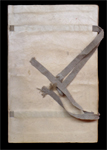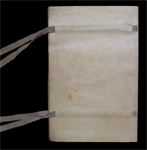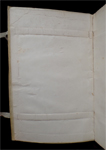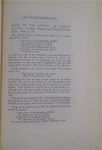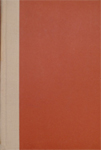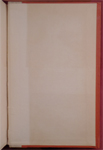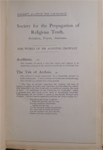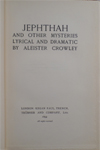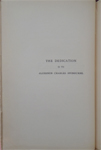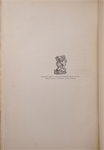100th
MP

|
THE
100th
MONKEY
PRESS |
|
|
|
Limited Editions by Aleister Crowley & Victor B. Neuburg |
|
Bibliographies |
|
Download Texts
»
Aleister
Crowley
WANTED !!NEW!!
|
|
JEPHTHAH AND OTHER MYSTERIES |
|
Image Thumbnails |
||||||||||||||||||||||||||||||||||||||||||||||||||||||||||||||||||||||||||||||
|
Title: |
Jephthah and Other Mysteries. Lyrical and Dramatic. |
|
||||||||||||||||||||||||||||||||||||||||||||||||||||||||||||||||||||||||||||
|
Variations: |
|
|||||||||||||||||||||||||||||||||||||||||||||||||||||||||||||||||||||||||||||
|
Publisher: |
Kegan Paul, Trench, Trübner & Co.1 |
|||||||||||||||||||||||||||||||||||||||||||||||||||||||||||||||||||||||||||||
|
Printer: |
The Chiswick Press, Charles Whittingham and Co., Tooks Court, Chancery Lane, London.1 |
|||||||||||||||||||||||||||||||||||||||||||||||||||||||||||||||||||||||||||||
|
Published At: |
London.1 |
|||||||||||||||||||||||||||||||||||||||||||||||||||||||||||||||||||||||||||||
|
Date: |
1899.1 Dr. Richard Kaczynski places the publication date as July 1899.5 |
|||||||||||||||||||||||||||||||||||||||||||||||||||||||||||||||||||||||||||||
|
Edition: |
1st Edition. |
|||||||||||||||||||||||||||||||||||||||||||||||||||||||||||||||||||||||||||||
|
Pages: |
xxii + 223 + 8 pages advertisements.1 |
|||||||||||||||||||||||||||||||||||||||||||||||||||||||||||||||||||||||||||||
|
Price: |
Copies on machine-made paper were priced at seven shillings, sixpence.1 |
|||||||||||||||||||||||||||||||||||||||||||||||||||||||||||||||||||||||||||||
|
Remarks: |
Dedicated to Algernon Charles Swinburne.1 Eighty-two copies were provided to the press for their review.7 Crowley was disappointed with Kegan Paul's management of his book sales and closed his account with them in May of 1904. Between 1902 and 1904, Kegan Paul had only managed to sell two copies of Jephthah and Other Mysteries.6 |
|||||||||||||||||||||||||||||||||||||||||||||||||||||||||||||||||||||||||||||
|
Pagination: States (a) and (b) prior to Crowley's distribution through the S.P.R.T.2 |
|
|||||||||||||||||||||||||||||||||||||||||||||||||||||||||||||||||||||||||||||
|
Pagination: State (b) after Crowley began distributing copies through the S.P.R.T.3 |
|
|||||||||||||||||||||||||||||||||||||||||||||||||||||||||||||||||||||||||||||
|
Contents: |
|
|||||||||||||||||||||||||||||||||||||||||||||||||||||||||||||||||||||||||||||
|
Author’s Working Versions: |
|
|||||||||||||||||||||||||||||||||||||||||||||||||||||||||||||||||||||||||||||
|
Other Known Editions: |
|
|||||||||||||||||||||||||||||||||||||||||||||||||||||||||||||||||||||||||||||
|
Bibliographic Sources: |
|
|||||||||||||||||||||||||||||||||||||||||||||||||||||||||||||||||||||||||||||
|
Comments by Aleister Crowley: |
During the whole summer, the weather got steadily worse and my health took the same course. I found myself obliged to leave the camp and go to London to see doctors. I took rooms in an hotel in London, attended to the necessary medical treatment and spent my time writing poetry. The play Jephthah was my principal work at this period. It shows a certain advance in bigness of conception; and has this notable merit, that I began to realize the possibility of objective treatment of a theme. Previous to this, my lyrics had been more or less successful expressions of the ego; and I had made few attempts to draw characters who were not more than Freudian wish phantasms — I mean by this that they were either projections of myself as I fancied myself or aspired to be; otherwise, images of women that I desired to love. When I say “to Love”, I doubt whether the verb meant anything more than “to find myself through”. But in Jephthah, weak as the play is, I was really taking an interest in other people. The characters are not wholly corrupted by self-portraiture, I suck to the Hebrew legend accurately enough, merely introducing a certain amount of Cabbalistic knowledge. The passionate dedication to Swinburne is significant of my literary hero-worship. With this play were published (in 1899) a number of lyrics entitled “Mysteries, Lyrical and Dramatic”. The shallow critic hastily assumed that the influence of Swinburne was paramount in my style, but on rereading the volume I do not think that the accusation is particularly justifiable. There are plenty of other authors who might more reasonably be served with an affiliation summons. Indeed, criticism in England amounts to this: that if a new writer manifests any sense of rhythm, he is classed as an imitator of Swinburne; if any capacity for thought, of Browning. I remember one curious incident in connection with this volume. I had a set of paged proofs in my pocket one evening, when I went to call on W. B. Yeats. I had never though much of his work; it seemed to me to lack virility. I have given an extended criticism of it in The Equinox (vol. I No. II, page 307). However, at that time I should have been glad to have a kindly word from an elder man. I showed him the proofs accordingly and he glanced through them. He forced himself to utter a few polite conventionalities, but I could see what the truth of the matter was. I had by this time become fairly expert in clairvoyance, clairaudience and clairsentience. But it would have been a very dill person indeed who failed to recognize the black, billious rage that shook him to the soul. I instance this as a proof that Yeats was a genuine poet at heart, for a mere charlatan would have known that he had no cause to fear an authentic poet. What hurt him was the knowledge of his own incomparable inferiority. — The Confessions of Aleister Crowley. New York, NY. Hill and Wang, 1969. Page 165-166. ______________________________
My poetry at this time is charged to the highest point with these aspirations. I may mention the dedication to Songs of the Spirit, “The Quest”, “The Alchemist”, “The Philosopher’s Progress”, “A Spring Snowstorm in Wastdale”, “Succubus”, “Nightfall”, “The Storm”, “Wheat and Wine”, “Vespers”, “Astrology” and “Daedalus”. In “the Farewell of Paracelsus to Aprile”, “The Initiation”, “Isaiah” and “Power”, I have expressed my ideas about the ordeals which might be expected on the Path. All these poems were published in 1898. In later volumes, Mysteries Lyrical and Dramatic, The Fatal Force, The Temple of the Holy Ghost and Tannhäuser, these ideas are carried further in the light of my practical experience of the Path. — The Confessions of Aleister Crowley. New York, NY. Hill and Wang, 1969. Page 146-147. ______________________________
On my return from Switzerland in 1898, I had nowhere in particular to go. There was no reason why I should settle down in any special place. I simply took a room in the Cecil, at that remote period a first-class hostelry, and busied myself with writing on the one hand and following up the magical clues on the other. Jephthah, and most of the other poems which appear in that volume, were written about this period. It is a kind of backwater in my life. I seem to have been marking time. For this reason, no doubt, I was the more ready to be swept away by the first definite current. It was not long before it caught me. — The Confessions of Aleister Crowley. New York, NY. Hill and Wang, 1969. Page 172. |
|||||||||||||||||||||||||||||||||||||||||||||||||||||||||||||||||||||||||||||
|
Reviews: |
Jephthah and Other Mysteries Lyrical and Dramatic is the title of a volume of verse by Mr. Alexander [sic] Crowley. The book is dedicated to Mr. Swinburne, and the dedicatory lines are absurdly and fulsomely flattering. Mr. Swinburne is placed on a pedestal beside Dante, Milton, and Victor Hugo. Mr. Crowley is evidently a hero worshipper. We wish he had selected a better model that the author of Songs before Sunrise. The poems in the volume are, for the most part, weak imitation of Mr. Swinburne’s lyrics, without their music and with all their sins against good taste superadded. The Rape of Death is, perhaps, the best effort in the volume. It is a wild Norse legend told in melodious three-lined verse which, by its very form, produces a weird and lurid impression. —The Westminster Review, September 1899. ______________________________
Mr. Aleister Crowley, who used to write as "A Gentleman of the University of Cambridge," now published 'Jephthah and Other Mysteries, Lyrical and Dramatic' (London: Keagan Paul), and dedicates them to Swinburne. The hero of his 'Mysteries is a young poet, adrift in the streets of London, who, in answer to the question what he writes about, says naïvely: "I write about all the horrible things I see, and try to find beauty in them or to make beauty" (p. 105), and this seems to give a key to Mr. Crowley's method, although apparently he does not try very hard. The surprise is that there should be in the same volume some tender and thoroughly poetic things, such as "In the Woods with Shelley" (p. 211). —The Nation, 16 November 1899. ______________________________
JEPHTHAH and Other Mysteries Lyrical and Dramatic. By Aleister Crowley). 7s. 6d. (Kegan Paul.) The verse of Mr. Aleister Crowley hovers fitfully between poetry and fine language. In no case is it very readable, and yet we own it is impressive. Firstly, its sound is good—he is an apt student of both Swinburne and Shelley. Nest, his form is far above the average. And then, too, his mind dwells habitually in lofty regions. Only something is wanted—less vagueness, more conciseness, more power of vivid suggestion—to make him a very considerable poet indeed. We do not advise him to come down from his heights. Where he does so, in the so-called “mystery,” entitled “The Poem”—which is about a charming mild-mouthed young man, whose father stabs him for writing poetry, and whose lady-love dies in consequence, but first of all finishes his incomplete great poem—the result is sheer nonsense. But in “Jephthah” there are fine lines, and the poem is built on a noble conception of the central character. The song, too, descriptive of the maiden’s going to her death, has true pathos in it—
She goes, our sorrow’s sacrifice, Our lamb, our firstling, frail and white, With large sweet love-illumed eyes Into the night, into the night. The throne of night shall be withdrawn; So moveth she toward the dawn.
Mr. Crowley is a man of ideas. He has fluency to express them. He may yet win to a more convincing and a simpler style. —The Bookman, September 1899. ______________________________
FROM BAD
TO VERSE The decay of the spirit of poetry in England is one of the most depressing of all the sad signs of the times. No doubt great bards are like the best comets, and only flash across our horizon at long, irregular intervals, but the murkiness of the present outlook bears all the stigmata of permanence, and we find an added hopelessness in the complacency with which our literary public accepts its fate. In France there is no great poet nor any promise of his advent, but the very vulgar are forever scanning the skies. The present writer remembers being asked his profession by a French official for some legal formality. Having no very distinct inspiration for an answer, he hesitated, whereupon a string of likely professions were instantly prompted: “Are you an engineer or a lawyer or a contractor or a poet?” To the inquirer there was no sense of incongruity or sly chaff in the final suggestion. Poetry as a profession had been as readily received as electricity or medicine or the perfecting of automobiles. Here on the other hand it would have provoked the utmost derision and found ruthless translation into that final formula, “of no occupation.” It is only when we wish to be specially sarcastic that we allude to “the poet Watson” or “the poet Austin” or the poet Davidson.” Yet their profession, poorly exercised though it may be, has surely an equal claim to recognition with that of the painter or the mummer. A few versifiers have developed a certain distinction of form, usually by a slavish imitation of successful writers, but they lack all vestige of a divine afflatus, and often approach perilously near to unconscious parody. The rest are mere producers of grotesque doggerel, which ought never to have been permitted to see the light of print. The only mystery about Mr. Crowley’s effusions is that his friends should not have kindly but firmly restrained him from such an egregious exhibition. That he has friends is to be presumed from the astounding virulence of two sonnets, which he has dedicated “to the author of the phrase: ‘I am not a gentleman and I have no friends.’ ” They are dated “at the hour of the eclipse, Wednesday December 28,” which suggests that the usual lunar influence was not abated by the sun’s interposition. Here are some choice fragments:
Sickens the sunshine . . . . . . go, go thy ways To other hells, thou damned of God hereafter ’Mid men’s contempt and hate and pitiless laughter . . . The scroll Opens and ‘coward, liar, monster’ shake Those other names of ‘goat’ and ‘swine’ and ‘snake’ Wherewith Hell’s worms caress thee and control. Nay, but alone, intolerably alone, Alone, as here, thy carrion soul shall swelter, Yearning in vain for sleep, or death, or shelter; No release possible, no respite known, Self-damned, without a friend, thy eternal place Sweats through the painting of thy harlot's face.”
“The dedication,” we read, “is to Algernon Charles Swinburne,” but we presume without permission unless he has been beguiled by Mr. Crowley's fulsome apostrophe:
“Then rose the splendid song of thee, ‘Thou liest,’ Out of the darkness in the death of hope, Thy white star flamed in Europe's horoscope.
* * * * * * * *
The obscene God spat on the universe: The sods of Destiny were spattered on her: Then rose thy spirit through the shaken skies: ‘Child of the Dawn, I say to thee, arise!’ Through the ancestral shame and feudal gloom, Through Mediaeval blackness rung thy paean: Let there be light!—the desecrated tomb. Gaped as thy fury smote the Galilean.”
The secret of this frenzied enthusiasm is to be found in some press notices, which suggest at the end of the volume, that Mr. Crowley's verses have “the very sound of Mr. Swinburne.” They are indeed full of sound and of very little else. Neither the individual sentences nor the whole poems possess any intelligible meaning, and their author's sense of proportion may be gauged by a reference to modern Italy as “The eagle of all time . . . eagle and phoenix.” The only instructive fact to be noted is that attacks on God and kings rarely fail to go together—at least among poets who pose as advanced teachers. Carducci had already exemplified this before he followed up his ode to the Devil by another to the Queen of Savoy. —The Literary Era, November 1899. ______________________________
“And I, I know not anything, but know We are still silent, and united so, And all our being spells one vast To Be, A passion like the passion of sea.”
So sings Mr. Aleister Crowley in his new book “Jephthah; and other Mysteries Lyrical and Dramatic.” (Kegan Paul) L.B. And who is Mr. Crowley? E.L. A young poet whose first book contained promise, some of which is fulfilled in the lyrical portion of this. “Jephthah,” I am sorry to say, I find uninteresting. I feel certain, however, that Mr. Crowley will attain—after much experimental writing, perhaps. —The Speaker, 12 August 1899. ______________________________
“Jephthah and Other Mysteries,” lyrical and dramatic, is dedicated to Mr Swinburne. Not only by this token, but by much also in the book does Allister Crowley hint at his indebtedness to the great lyricist. He has drunk deeply as the Swinburnian fount, and the draught has made him “heady,” with the result that his poetry is confused and clamorous. It reads like a dictionary let loose, and only at intervals do the words seem to arrange themselves into sane sentences. One is reminded of a cloudy day, when in sudden moments the sun streams through the rifts and golden beams play for a little space on the other-wise shadowed world. The title poem, a tragedy in rhyme, has a certain dignity of mien, and there are passages in it of considerable beauty, but the story proper is choked with words. “The Poem,” a drama in four scenes, is elevated in style, pathetic, yet rampantly melodramatic. One reader may weep over it, another laugh uproariously. Mr Crowley is too mystical. What he writes is vapourish. It is quite apparent that his is a thoughtful mind, vastly impressed by the supreme things of life, and with these he wrestles manfully and as a poet should. His scholarship is evident. But he should leave Swinburne and Shelley alone. He has enough elemental poetry in his own soul to enable him to do without them. As it is they have led him into writing some splendid nonsense. Outside their doubtful company his thought becomes sweeter and saner and his poetry altogether fresher and finer. (London: Kegan Paul, Trench, & Co., Limited. 7s 6d.) —The Dundee Advertiser, 27 July 1899. ______________________________
Mr. Crowley is a master of colour, if a little deficient in form and accuracy of outline. It would be easy, no doubt, to pick out place after place where the grammar is shaky, the meaning obscure, and the choice of epithet and noun determined more by the exigencies of rhyme than by natural appositeness; but where one recognises a certain reality of power in a writer, such extravagances may be passed over. When he condescends to leave his “mystic” heights and the enigmata that belong to those altitudes, Mr. Crowley composes well indeed. What could be better—in the Shelleyan vein—than this?
Sing, happy nightingale, sing; Past is the season of weeping; Birds in the woods are on wing, Lambs in the meadow are leaping, Can there be any delight still in the buttercup sleeping.
Much more also of the same quality, were there only the necessary space for further citation. —The Bookseller, 4 August 1899. ______________________________
Mr Crowley has paced the literary stage before, not without success, though it were not much more than the success of expectation. He was hailed as a promising young man, and a follower of Swinburne. It is true that young men usually follow somebody or something; but this does not imply depreciation. It is also true that some critics appear to expect an absolutely impossible originality, and that they forget Emerson’s dictum that the greatest genius is the most indebted man. Nobody borrowed more than the Bard of Avon; yet he has been held to have achieved a tolerable reputation. Poor Brahms declared that the most exasperating people in the universe were those who listened to a new composition only with the view of noting whence the composer had derived his ideas, and who, at the conclusion, nodded to each other and whispered, ‘Beethoven,’ or ‘Mendelssohn,’ or ‘old Sebastian Bach.’ Perhaps the poet who has the name of Swinburne flung at him feels something of this, though Mr Crowley has dedicated his book to that distinguished singer. To our mind, whatever may be said of the earlier effort, ‘Songs of the Spirit,’ the present book is not distinctly Swinburnian. There is no need to compare the writer with any other, but if we had to elect we should declare for Milton; that is, Milton plus two centuries. We make no comparisons; rather does Mr. Crowley appear to be in style a strong eclectic, with a due measure of the unique which represents an unfettered, unsophisticated self. He can hardly be called a minor poet; with him it is neck or nothing. He is very much in earnest, and sufficiently unorthodox even for this faithless age. Not a particularly sweet singer, but strenuous, and with a wonderful mastery of certain technical forms. He has been praised for the perfection of his rhythm, but he is not always perfect; there are lines that require slight management on the part of the reader, because they do not quite read themselves. But these are rare, and the swing of the lyrics is everywhere admirable. The chiefest fault is obscurity. To get the meaning you have to pause, and corrugate the brow, which would not matter much if you were sure that you had the thought at last, and that it was worth waiting for. It should be said that ‘The Dedication’ is a poem expressive of admiration of Swinburne, and that the title-work is only one of many that the book contains. ‘Jephthah’ is, of course, a tragedy. ‘The Five Kisses’ comprises a series of lyrics of impassioned character, skillful technique, and real poetic frenzy, though they may, perhaps, ‘prove nothing,’ and puzzle the mere utilitarian. ‘A Sonnet of Blasphemy’ may be given as an average specimen of our poet’s verse and sentiments:—
Exalted over earth, from hell arisen, There sits a woman, ruddy with flame Of men’s blood spilt, and her uncleanly shame, And the thrice-venomous vomit of her prison.
She sits as one long dead; infernal calm, Chill hatred, wrap her in their poisonous cold. She careth not, but doth disdainly hold Three scourges for man’s soul, that know no balm.
They know not any cure. The first is Life, A well of poison. Sowing dust and dung Over men’s hearts, the second scourge, above All evil deeds, is Lying, from whose tongue Drops envy, wed with Hatred to sow Strife.
These twain are bitter. But the last is Love.
There are many poems the titles of which we need not give. Nearly all seem to indicate that Mr Crowley is still in the thick of his passions; the ferment is discernable to all who have passed that way. But there is good wine there; he must be reckoned with. If he progresses his will become a great name. If he has arrived at his limits we shall hear no more of him. But from the power and earnestness of the book before us we are inclined to favour his chances in the future. He has shown at least the foot of Hercules. —Birmingham Gazette, circa 1899. ______________________________
Mr. Aleister Crowley is a very vigorous and very prolific disciple of the Swinburnian school of poetry. Not the early school with its musical voluptuousness, or the latest school with its respectableness, but a sort of middle school which includes the music and mastery of versification. Mr. Crowley has now published “Jephthah and other Mysteries Lyrical and Dramatic” (Kegan Paul, Trench, Trubner, and Co.), which is dedicated to Swinburne, and which is really—it is very handsomely presented to the public—a tribute that any poet might welcome with complaisance. The tragedy, which gives its name to the book, is replete with sonorous verses and fine imagery. The poet feels the pathos of the father’s suffering and the maiden’s grief, and he represents it in verse, whose form in unchallengeable. The high level touched at times is not always maintained or even nearly reached, but some of the songs of the chorus are classical in their mournful melody. Mr. Crowley will be heard of more favourably yet, if he will but rein in that prancing Pegasus of his. —The Sydney Morning Herald, 12 August 1899. ______________________________
Sound and Fury
Mr. Crowley takes himself very seriously; he believes he has a mission, he thinks there is at least a probability that his poetry will make a stir in the world and among posterity. We wish we could think so too, because we might in that case hope for some little scrap of posthumous fame in return for having been one of the first to acclaim him; but we are compelled to forego this pleasant prospect, and to state our opinion that this poet’s estimate of his own powers is not at all likely to be shared by a large number of his fellow men. We gather that Mr. Crowley is a young man; in his dedication he calls himself a boy; but as he had published three volumes of verse, has been to Cambridge, and has done some difficult Alpine climbing (three years ago), this must not, we suppose, be taken too literally. The signs of youth, however, are present throughout the volume. There is the customary homage to Mr. Swinburne, and (alas!) the usual failure to write in his manner without adopting his mannerisms. Mr. Crowley, in his dedicatory verses to thee other poet, addresses him as “Master,” and expresses unbounded admiration for Mr. Swinburne’s political poetry. He thinks that it did a great deal of good, and proposes to write something in the same style himself:—
Master, the sons of Freedom are but few— Yea, but as strong as the storm-smitten sea, Their forehead consecrated with the dew, Their heart made mighty: let my voice decree, My spirit lift their standard: clear and true Bid my trump sound, “Let all the earth be free!”
—and so on. We do not know if Mr. Swinburne will comply with this request, but if he should do so he might take the opportunity to point out to his disciple that he should eschew what are known as “Cockney rhymes”—such as “dawn” and “sworn”—and also such unwelcome additions to our stock of verbs as “to lume” and “to pact.” We do not wish to dwell unfavourably upon youthful affectations, such as the writing of Kjöbnhavn for Copenhagen, and the spelling of cabalistical with a q; but it is carrying imitation to an unpardonable length to introduce quotations from “The Garden of Proserpine” into a poem composed in the same metre. This shocking breach of literary etiquette would be enough to make us despair of Mr. Crowley’s chances of renown. But there are other reasons for adopting a pessimistic attitude in this respect. Modelling his work on Mr. Swinburne’s least admirable performances , he gives us a quantity of windy stuff about “the harpy brood of king and priest,” “the styes and kennels of priest and king,” and so forth. A person appears to have originated a phrase, inoffensive enough, as follows: “I am not a gentleman and I have no friends.” For some unexplained reason (presumably one of the “Mysteries,” of which the volume is said to be composed), Mr. Crowley is so furious with this individual that he positively foams at the mouth in two sonnets of frothy vituperation. The author of the phrase in question is “self-damned.” The sunshine is sickened with the leprous moisture of his veins. His haggard eyes are bleared with their own corrupting infamies. His lazar corpse will break the burning surface of the fiery lake in lava. The reader may think that this is enough, but Mr. Crowley’s quiver is by no means exhausted; his enemy has a carrion soul’ he is caressed by Hell’s worms; he is a coward, a liar, a monster, a goat, a swine, a snake. It is scarcely necessary for us to add that the sonnets are so bad that the person to whom they are addressed need not trouble himself to search for any rejoinder. It is true that this farrago, of which Mr. Crowley should be heartily ashamed, is the worst thing in the volume. If Mr. Swinburne had never displayed violence in criticism, Mr. Crowley would doubtless have used more urbanity—which shows how careful our poets should be. But we would not hold them responsible for all the antics of their forcible-feeble imitators. Mr. Crowley never gives us a chance (except, perhaps, in two very dreary “dramas” as to which we have nothing more to say) of judging him on his merits. In his “Valentine,” he appears to be writing in the character of the Gay Lord Quex, who, as we know, found a fair young English girl to be the inevitable end of his career of conquests. Mr. Crowley assures the lady of his profound affection, but he cannot help informing her at the same time that he has been the devil of a fellow in his day—that he has “dallied in classic bowers,” and that—not to mince matters—his mouth “has clung to flame of hell.” To us the whole thing rings hollow, and the bard who hints thus of this past exploits with Eros and Aphrodite reminds us of the poor young men who stand on Delmonico’s doorstep in the evening with toothpicks in their mouths, striving to convey the impression that they have been feasting within. We would not have devoted so much space to Mr. Crowley had not some of the press criticisms on his previous publications, printed at the end of this volume, shown us that a certain number of our contemporaries were at one time disposed to encourage him to persist in his metrical exercises. Among the reviews, however, we find one (from the Athenoeum) which contains the following sentence: “We cannot say these verses deserve to be read;” and we think that the same dictum may very properly be applied to this volume of so-called Mysteries. —The Pall Mall Gazette, 17 October 1899 ______________________________
We confess to having experienced the utmost difficulty in determining the merit and meaning of Mr. Crowley’s work. . . . His talent is undeniable, but wholly misused in a vain quest after the incomprehensible. —The Jewish World, date unknown. ______________________________
When, a few months ago, we commended Mr. Aleister Crowley's little volume of verse, entitled Songs of the Spirit, we noted in it a certain immaturity which we hoped might not be so apparent in succeeding volumes from his pen. But Mr. Crowley, encouraged by a measure of success, seems to have hastened to disinter and to present to the world some earlier efforts of his muse. In Jephthah's Vow (Kegan Paul, 7s. 6d.) there is not mere immaturity, but absolute rawness; all the intolerant dogmatism of the undergraduate conjoined with the unconvincing passionateness of a somewhat belated disciple of Swinburne. When Mr. Crowley rants about kings mocking Freedom as she wept, and priests snarling at thought, and of somebody's white star flaming in Europe's horoscope, and of the styes and kennels of priest and king, we can only remember that Mr. Swinburne said all this kind of thing, in somewhat better verse, some thirty or forty years ago, and that it has vanished into the limbo of forgotten verse. Mr. Crowley takes himself too seriously; it is the manner of precocious youth. He is not competent to settle all human problems with a lyric. But, he has a very pretty gift of verse-making, which, after he has completed his apprenticeship to the Muse, we hope that he may still put to worthy use. —The Church Times, 16 February 1900. ______________________________
We cannot say that there is no promise in the book. At present it is all a rushing and rioting of words with the vicious scorn of all the world that the young love. But age and experience may do much, and Mr. Crowley may write good poetry some day. . . . Bathos and banality! but the writer may improve. —Vanity Fair, date unknown. ______________________________
If Mr. Swinburne had never written we should all be hailing Mr. Aleister Crowley a very great poet indeed. His new volume Jephthah and other Mysteries (Kegan Paul and Co., 8vo, pp. xxi, 223, 7s. 6d.) contains much delightful verse which yet can hardly be praised as it would be if "Poems and Ballads" and its successors had never been printed. Take for instance—
A time for song and laughter, And tender tears that fall; A time to think of after, One long sweet festival; A time for love and gladness, For life and hope and madness, And scarce a tinge of sadness To sanctify it all.
Or take this stanza from one of the fine choruses in "Jephthah":—
For the web of the battle is woven Of men that are strong as the sea, When the rocks by its tempest are cloven And waves wander wild to the lee; When ships are in travail forsaken, And tempest and tumult awaken; When foam by fresh foam overtaken Boils sanguine and fervent and free,
It is extremely difficult to know how far this sort of thing is purely imitative and how far it is the product of a really poetical mind over-strained by the attraction of Mr. Swinburne's genius. The book is dedicated to Mr. Swinburne in glowing and admiring lines that incline us to solve the puzzle in the latter fashion. "Jephthah" itself is a largely conceived and finely executed piece of work which alone is enough to prove Mr. Crowley's independent claim to the name of poet. It will be easier to judge his orbit when he gets a little further away from the giant planet that has drawn him. At present we can only say that his work shows skill and promise enough to make us hope that he will not sink into a mere satellite. —The Manchester Guardian, 15 August 1899. ______________________________
It is a work of no small power, the choral lyrics reaching remarkable heights and more than compensating for the rather obscure theology with which the piece as a whole is clouded. . . . There are many fine sonnets and pieces that carry one on by their rush of impetuous feeling and musical language. . . . The thought is worthy, never deep or simple, and the verse turns out to be a sort of serpentine dance with coloured lights of feeling thrown on from the outside. —The Scotsman, date unknown. ______________________________
If at times wanting in taste, Mr. Crowley has at least indubitable singing power, and mastery of form. We look with interest for his next work. —Literary World, date unknown.
______________________________ Aleister Crowley is an enthusiastic admirer and close imitator of Mr. Swinburne, copying, indeed, defects even more faithfully than beauties. He gives us a torrent of words, a deluge of adjectives, verbiage that is generally musical, but in which the poetic thought is much inferior to its form. Here is a very Swinburnian stanza:
“When the countenance fair of the morning, And the lusty bright limbs of the day, Race far through the West for a warning Of night that is evil and gray; When the light by the Southward is dwindled, And the clouds as for sleep are unfurled. The moon in the East is rekindled The hope of the passionate world.”
This is melodious and eloquent, but it does not bear analysis, and it reads more like a parody than real poetry. In the stanza:
“With songsters the heavy sweet air Is trembling and sighing and shimmering, With meteors magically fair The sky is ecstatically glimmering,”
It is strange that anybody with an ear for poetry could tolerate the last line. We gather from intrinsic evidence only that the author is young, a fact which might, indeed, be deduced from his overweening self-confidence; and when he has sown his literary wild oats he may possibly become a great poet. But the handling which his proof sheets would receive from the Seven—some of whom he would undoubtedly shock—would do him good. —The Morning Post, 29 September 1899. ______________________________
Jephthah and other Mysteries—Lyrical and Dramatic, by Aleister Crowley (Kegan Paul, Trench, Trübner & Co.), is of a wholly different character. Its author has been a diligent student of Mr. Swinburne, and dedicates his work to him. He has caught some of Mr. Swinburne’s fire, and naturally has adopted some of his verse forms. But he out-Swinburnes Swinburne’s passion, and gets carried by it sometimes altogether beyond ordinary comprehension. His bete-noir seems to be the God of the Old Testament and of the current Christian faith. The divine name seems to act upon him as a red rag on a bull. He can hardly find epithets gross enough to give vent to his hatred of Him. When he gets out of that province his verse, though unequal, is sometimes chaste and his teaching reasonable. His book as a whole is, however, much too extravagant in its heat and obscure in its diction to prove pleasant or profitable reading to anyone who is not of the highly “intense” order. —The Scottish Review, September 1899. ______________________________
No lover of contemporary poetry should fail to read this delightful volume of verse. “Mr. Aleister Crowley” (who, if we mistake not, has an intimate northern connection) has, more than any other of his time, caught the spirit and the style of Swinburne, and in some respects the pupil is greater than his master. If occasionally his meaning is incomprehensible, it is certainly not often that he lapses into meaningless verbiage, and his worst sins in this respect could be without difficulty paralleled from Swinburne and Browning. Mr. Crowley has a vivid imagination and the true poetical temperament. The most captious critic will find very little to blame in the smooth, majestic flow of his rhythms, only we should like to point out that on page 127, in the last verse on the page, “saw” does not rhyme very well with “before.” The longest piece in the book is “Jephthah, a Tragedy,” and Mr. Crowley has certainly handled his materials with consummate skill. The terrible nature of the situation is brought home to one far more vividly than in the bald Biblical narrative. As an example of Mr. Crowley’s style, we quote the following choral ode:—
The young men are girded with swords, And the spears flash on high, and each shield Gleams bright like the fury of lords Through the steam of the well-foughten field, And the children of Ammon are broken, their princes and warriors yield.
The people were sad for his wrath, The elders were bowed with despair, And Death was the piteous path; With ashes we covered our hair; The voice of the singer was dumb, the voice of the triumph of prayer.
Our sin was great in His sight: We chased from our gates our brother, We shamed his father’s might, We spat on the grave of his mother, We laughed in his face and mocked, looking slyly one to another.
But God beheld, and His hand Was heavy to bring us grief; He brought down fire on the land, And withered us root and leaf Until we were utterly broken down, lost men without a chief.
But whom we scorned we have set A leader and judge over all, His wrong He may not forget, But He pitieth men that call From the heart that is broken with fear and the noise of funeral.
The lyrical pieces are of an exceptionally high order of merit, and we confidently anticipate that Mr. Aleister Crowley will in no time take his place as an English poet of acknowledged eminence. The book is beautifully printed on excellent paper, and most tastefully bound. —The Aberdeen Journal, 31 July 1899. ______________________________
The peculiar story of Jephthah has been often treated by poets, but never, as it seems to us, so effectively as by Mr. Crowley. His adoption of the Greek form, in which the chorus takes a leading part, was well advised. The chorus lends spring and power to the progress of the tragedy, which consists in the sacrifice, through accident, of the virgin daughter of Jephthah, who never dreamed that his vow would lead to such a catastrophe. The verse is bold and beautiful, and the whole piece is certainly very striking. While not of course intended for the stage, it seems to us that with proper condensation it would offer an admirable subject to the composer who wished to distinguish himself in the region of oratorio. One characteristic of Mr. Crowley’s book cannot fail to strike the commonest reader—the eminently Swinburnian tone of its music. The younger poet calls the elder his master, and addresses to him a dedication which is not altogether unworthy of Mr. Swinburne’s earlier muse. It is full of large patriotic ideas expressed in far-rolling and fervent language, in which the spirit of the master breathes. Something of the same kind may be said of Mr. Crowley’s “Prelude,” which contains passages that would certainly make little Christians shiver should they happen to read them. We do not quite see what purpose the poet means to serve by such an outburst of chaotic verse. It is like the roar of an idol-breaker who is in danger of breaking his own head. The next considerable piece after “Jephthah: is entitled “The Five Kisses,” which contains some fine lyrical verse. “The Poem, a little Drama in four Scenes,” is a very nothing and might be called silly. “The Legend of Ben Ledi” is admirably spun out, and is one of the best lyrical effusions in the book. It is in fact a capital ballad. An “Ode to Poesy” is a fine production: several of the sonnets should have found no place in such a work—especially “A Sonnet of Blasphemy.” Happily, there are many redeeming lyrics, and “In the Woods with Shelley” is one of them. It is simple, yet beautiful. Mr. Crowley’s volume is in some sense a remarkable one; but it would be more pleasing if the poet were less given to certain wild flashes, as in the two sonnets written “At the Hour of Eclipse, Wednesday, Dec 28.” —The Glasgow Herald, 20 July 1899. ______________________________
The author of this work has proved himself a considerable master of verse. He has the gift of melody, and his verses run with ease and smoothness. In a poem, entitled “Man’s Hope.” he says:—
Ere fades the last red glimmer of the sun, Ere day is night, when on the flittering bar The waves are foaming rubies, and afar Streaks of red water, gold on th’ horizon, On summer ripples rhythmically ran, Ere dusk is weaned, there sails on silver car From the expectant East, the Evening Star, And all the threads of sorrow are unspun. So he who ordered this shall still work thus, And ere life’s lamp shall flicker into death, And Time lose all his empire over us, A gleam of Hope, of Knowledge, shall arise, A star to silver o’er Death’s glooming skies, And gladden the last labouring torch of breath. —The Belfast News-Letter, 31 July 1899. ______________________________
The author of this work has proved himself a considerable master of verse. He has the gift of melody, and his verses run with ease and smoothness. In a poem, entitled “Man’s Hope.” he says:—
Ere fades the last red glimmer of the sun, Ere day is night, when on the flittering bar The waves are foaming rubies, and afar Streaks of red water, gold on th’ horizon, On summer ripples rhythmically ran, Ere dusk is weaned, there sails on silver car From the expectant East, the Evening Star, And all the threads of sorrow are unspun. So he who ordered this shall still work thus, And ere life’s lamp shall flicker into death, And Time lose all his empire over us, A gleam of Hope, of Knowledge, shall arise, A star to silver o’er Death’s glooming skies, And gladden the last labouring torch of breath. —The Belfast News-Letter, 31 July 1899. ______________________________
Mr. Crowley has issued an ambitious volume, beautiful with wide margins and rough edges, and enriched with the wealth of a boundless vocabulary. It is dedicated to Algernon Charles Swinburne, “most sacred soul, most reverend head,” and both in the lines of this dedication, and in other portions of the book, the mighty influence of the “Master” can easily be traced. There is considerable technical skill in all the pieces; indeed, Mr. Crowley appears to have a natural gift of rhyme, and seldom fails to use it effectively, even in his most involved stanzas. And some of his stanzas are involved. What meaning can be extracted from such verse as this, with its four or five metaphors:—
“Yea, with thy whirling clouds of fiery light Involve my music, gyring fuller and faster! Yea, to my sword lend majesty and might To dominate all tumult and disaster, That even my song may pierce the iron night. Invoking dawn in thy great name, O Master! Till to the stainless heaven of the soul Even my chariot-wheels on thunder roll.”
Or what is to be understood by—
“so swift a fire Shall burn, that fire shall not be comprehended.”
Notwithstanding these defects, and much bombastic diction, there is undoubted merit and considerable promise in many of the pieces. In “Jephthah” there are many fine thoughts admirably expressed, but here Mr. Crowley had the Scripture narrative to guide him, and was not under necessity of taxing his own imagination. In other pieces, however, where he has not such assistance, he displays the true poetic spirit, as, for instance, in “The Honourable Adulters,”, “De Profundis,” or “The Five Kisses.” —The Manchester Courier, 16 August 1899. ______________________________
Aleister Crowley, a confessed Swinburnian, gives a stirring new version of the old mystery play in “Jephthah,” published, with other poems, by Kegan Paul, Trench, Trübner and Co. The iteration of magnificent words at last prevent even his great master from being read in quantities with pleasure; but in short extracts, both of them may be quoted with advantage. These are the final lines of the chorus when the hero’s daughter has withdrawn to the mountains:—
The silver West fades fast, the skies Are bine and silver overhead; She stands upon the snow, her eyes Fixed fast upon the fountain-head Whence from eternity is drawn The awful glory of the Dawn . . . He hath made His face as a fire; His wrath as a sword; He hath smitten our soul’s desire; He is the Lord.
A curious note is appended to the play in explanation of the theology adopted in it. Whence Mr. Crowley draws his precise knowledge of “the Hebrews of the period” he does not say:—
The Hebrews of the period had formulated the idea of Deity as
manifesting from the fundamental conception of Negative
Existence. The Ain, negativity, unfolded; the
—The Jewish Chronicle, 4 August 1899. |
|||||||||||||||||||||||||||||||||||||||||||||||||||||||||||||||||||||||||||||



